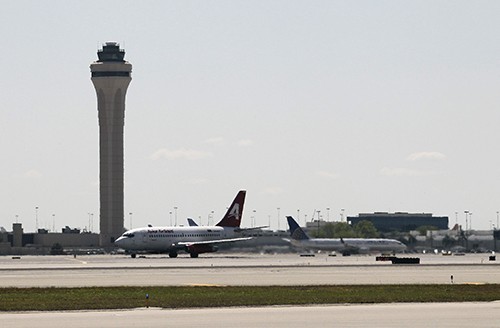WASHINGTON — Air traffic controllers will now be required to take an hour more of rest time between shifts, and their supervisors will work more overnight hours, under a new set of scheduling practices announced by federal officials on Sunday.
The new scheduling rules are being instituted immediately and will be fully in effect by the end of the week, according to Federal Aviation Administration officials.
Controllers will have to take a minimum of nine hours off between shifts, instead of the current eight hours required, and they won’t be able to make shift swaps that put them on an unscheduled midnight shift following a day off from work.
FAA managers also will be required to schedule their own shifts to encourage greater coverage in the early-morning and late-night hours, the agency said in a written statement released Sunday morning.
The changes are partly the result of interviews with controllers who fell asleep during their shifts in highly publicized cases this year, Transportation Secretary Ray LaHood said in an interview on “”Fox News Sunday”” Sunday morning.
“”I don’t know when I’ve ever been madder,”” LaHood said of the recent reports of controllers sleeping on the job. “”We’re not going to stand by and let that happen.””
Last month, after a sleeping controller at Reagan National Airport in Washington, D.C., failed to assist two jetliners on approach, the FAA told officials around the country to report all such instances directly to them rather than handling them locally.
Since then, six cases have come to light, including one involving a medical flight unable to contact a lone controller working overnight at the Reno, Nev., airport.
Early Saturday morning, a controller reported a co-worker asleep at the switches at a radar center near Miami.
The FAA has since put an additional controller on midnight shifts at airports that previously had only one.
And on Monday, the FAA administrator and the president of the controllers union will travel to Atlanta, beginning a tour of facilities around the country to talk with workers and promote professional standards.
The federal government will soon release the results of its study of fatigue and may order other changes as a result of their findings, officials said. But LaHood said Sunday that controllers themselves also must shoulder their share of the responsibility.
They can’t make changes to the assigned shift schedule or engage in off-duty activities that will make them too tired to report for duty, he said.
“”They have to take personal responsibility,”” LaHood said in the Fox interview. Their job involves the well-being of the public, he said, “”and it has to be done safely.””
All of the sleeping controllers in recent cases have been suspended from duty, and LaHood said it was possible that some or all of them would be fired. Union contracts require a full investigation of such cases before termination of employment.
“”We can fire him,”” LaHood said of an employee alleged to have fallen asleep several times in the past few weeks. “”But there has to be due diligence.””








